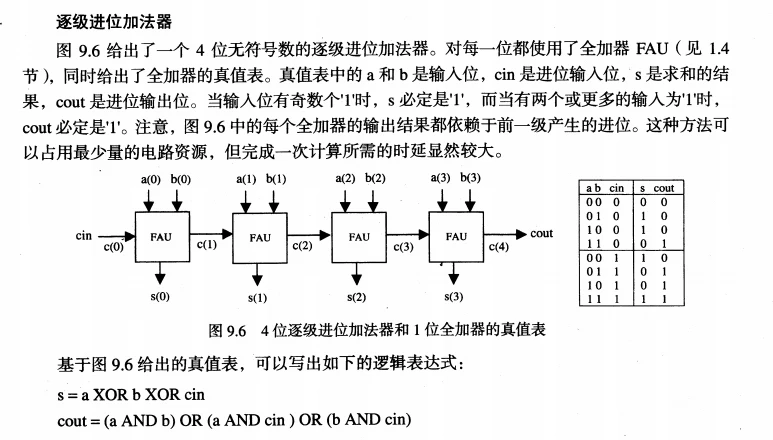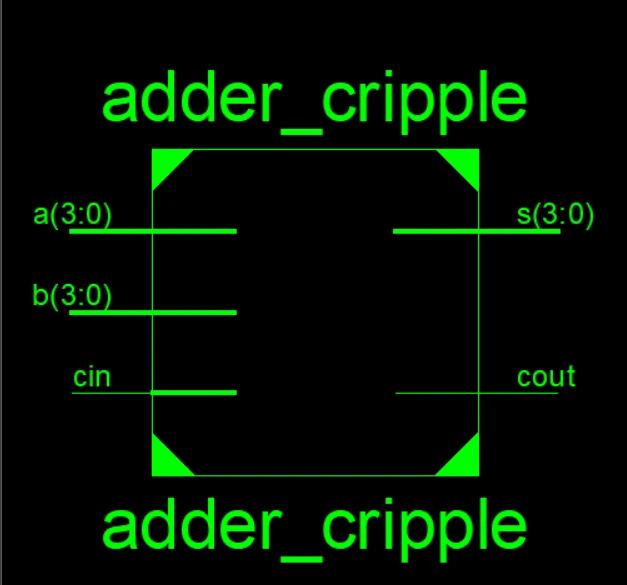关于逐级进位加法器:

VHDL实现:
library IEEE;
use IEEE.STD_LOGIC_1164.ALL;
entity adder_cripple is
generic(n:integer:=4);
port(
a,b:in std_logic_vector(n-1 downto 0);
cin: in std_logic;
s:out std_logic_vector(n-1 downto 0);
cout: out std_logic
);
end adder_cripple;
architecture Behavioral of adder_cripple is
signal c:std_logic_vector(n downto 0);
begin
c(0)<= cin; --这里的c是信号
G1: for i in 0 to n-1 generate
s(i)<= a(i) xor b(i) xor c(i);
c(i+1) <= (a(i) and b(i)) or
(a(i) and c(i)) or
(b(i) and c(i));
end generate;
cout <= c(n);
end Behavioral;
原理图:

进行测试:
LIBRARY ieee;
USE ieee.std_logic_1164.ALL;
ENTITY tb_addcri IS
END tb_addcri;
ARCHITECTURE behavior OF tb_addcri IS
COMPONENT adder_cripple
PORT(
a : IN std_logic_vector(3 downto 0);
b : IN std_logic_vector(3 downto 0);
cin : IN std_logic;
s : OUT std_logic_vector(3 downto 0);
cout : OUT std_logic
);
END COMPONENT;
--Inputs
---signal a : std_logic_vector(3 downto 0) := (others => '0');
---signal b : std_logic_vector(3 downto 0) := (others => '0');
signal a : std_logic_vector(3 downto 0) := "0001";
signal b : std_logic_vector(3 downto 0) := "0000";
signal cin : std_logic := '0';
--Outputs
signal s : std_logic_vector(3 downto 0);
signal cout : std_logic;
signal clk,rst:std_logic;
constant clk_period : time := 10 ns;
BEGIN
-- Instantiate the Unit Under Test (UUT)
uut: adder_cripple PORT MAP (
a => a,
b => b,
cin => cin,
s => s,
cout => cout
);
clk_process :process
begin
clk <= '0';
wait for clk_period/2;
clk <= '1';
wait for clk_period/2;
end process;
stim_proc: process
begin
rst<='0';
wait for 10 ns;
rst<='1';
wait;
end process;
END;
modelsim仿真:

